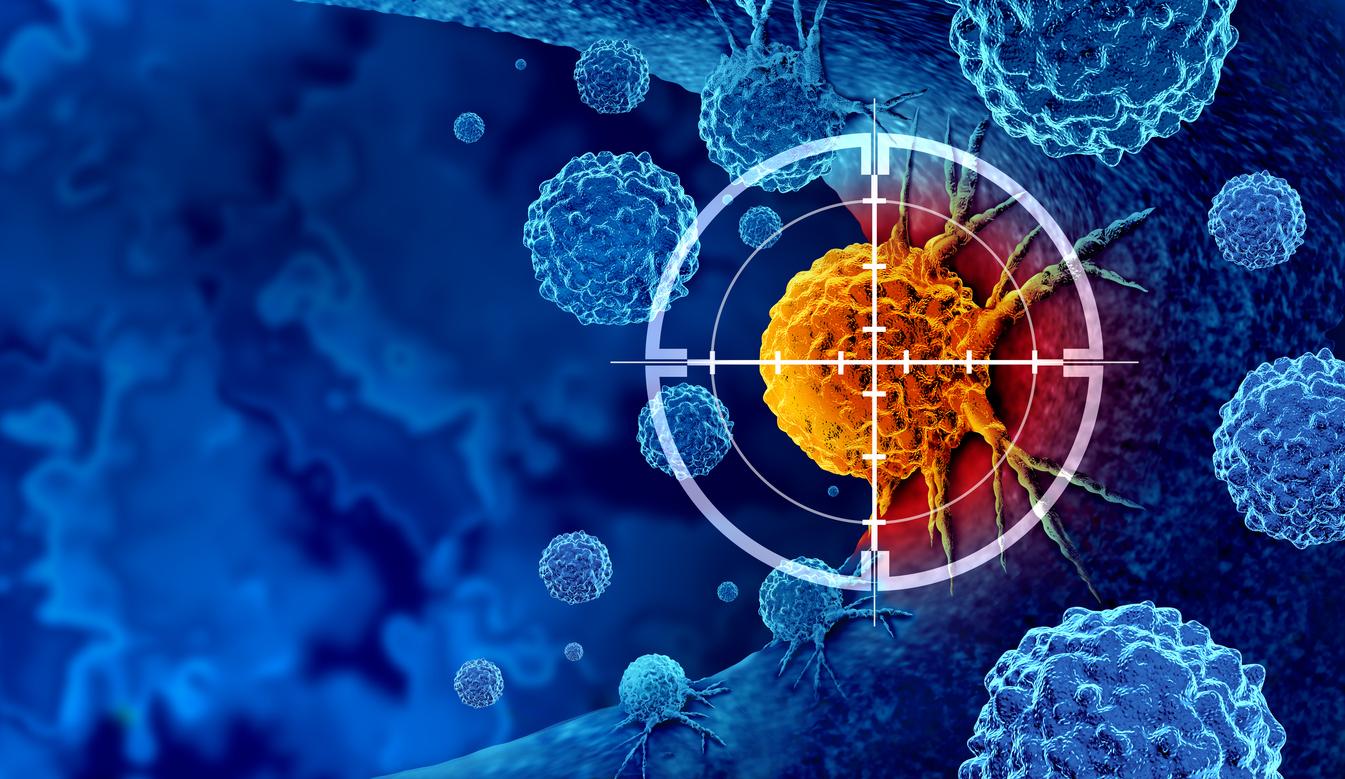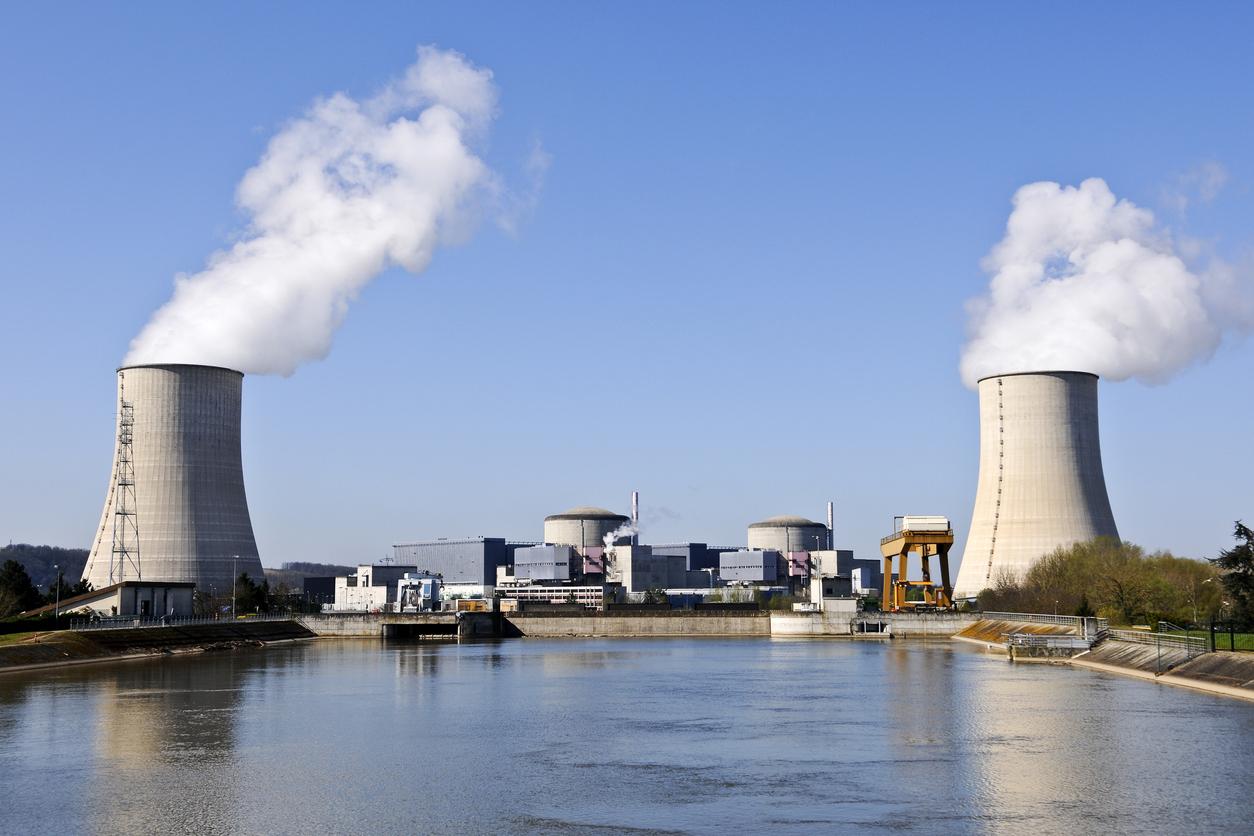At the ASCO congress, the experts focused on anti-PD1 antibodies capable of thwarting the defense mechanisms put in place by tumors.

- Cancerous tumors are able to stop the immune response
- “Checkpoint inhibitors” are antibodies that restore the activation of immune cells
- The “anti-PD1 / PD-L1” are the most promising antibodies
- Better identifying “responder” patients remains a major stake in rationalizing the use of these often expensive therapies.
The cells of the immune system are there to protect us against bacteria, viruses, and other “intruders” that can jeopardize the safety of our body and to destroy abnormal cells.
And yet, in the face of cancer, the immune system seems quite helpless. Immunotherapy, which is experiencing unprecedented growth, is arousing real enthusiasm among experts, in particular “anti-PD1” therapies, which will be in the spotlight this year at the American Society of Clinical Oncology Annual Meeting (ASCO) held in Chicago.
A “Grail” for almost 50 years
Acting on the immune system to fight tumors has been the goal of oncologists for decades. However, until recently, the various strategies developed had failed. “At the beginning, we were interested in immunotherapy directed against the tumor, for example we vaccinated with antigens against tumor cells, but that did not work”, recalls Frédérique Penault-Llorca, director of the Jean anti-cancer center. Perrin from Clermont-Ferrand.
By focusing their research no longer on the tumor cells themselves, but on their interactions – numerous – with their environment, and in particular the cells of the immune system, scientists have succeeded in developing molecules capable of thwarting the defense mechanisms involved. place by tumors.
Frédérique Penault-Llorca, director of the Jean Perrin anti-cancer center (Clermont-Ferrand): “We have a total paradigm shift …”
Outsmart pro-tumor immunity
“We realized that lymphocytes are recruited by tumors, but to protect them, there is therefore pro-tumor immunity”, explains Frédérique Penault-Llorca. The challenge of immunotherapy is therefore to restore lymphocytes to their initial capacity to fight the tumor instead of protecting it.
The immune response is essential to protect the body, but it should not last too long or be too intense so as to “overflow” and attack healthy cells. There is therefore a control system, “check-point”, which makes it possible to stop the activation of lymphocytes when necessary. But tumors protect themselves by activating this system. They thus “deceive” the immune cells, which stop their defense action.
Cancer research has taken a big step forward by developing molecules capable of lifting this brake. “Checkpoint inhibitors” are antibodies specific for certain cell signaling pathways. Anti-CTLA-4s were the first to demonstrate clinical efficacy, among them, ipilimumab, which is now the standard treatment for melanoma.
Frédérique Penault-Llorca : “That’s the beauty of the inhibitors of this system that the tumor has put in place to protect itself …”
PD1-PDL1: the royal road
Currently, among immunotherapies, it is the antibodies that target the PD1 / PD-L1 signaling pathway that seem the most promising. Suzanne Topalian, oncologist at Johns Hopkins University (Baltimore), has made a significant contribution to the research carried out on these molecules.
When opening session of the ASCO congress, devoted to anti-PD1, the scientist underlined to what extent these molecules were at the center of the tumor problem: “These drugs which target a single signaling pathway have an unprecedented spectrum of action, and offer a” common denominator ” to anti-cancer therapies ”. Tested in the treatment of certain lung cancers that are very refractory to chemotherapy since 2007, these antibodies are now the subject of numerous clinical trials, in very diverse types of tumors from melanoma to lymphoma.
Still limits
While enthusiasm is required in the face of the unprecedented results obtained with these molecules, pitfalls still remain to be overcome. The trials have thus shown that although these antibodies can significantly increase the life expectancy of patients, not all cancers are sensitive to treatment.
Some tumors respond better, especially those with the most genetic mutations. This explains the very good results obtained in lung cancer and melanoma, known to be cancer rich in mutations, known as “immunogenic”. Conversely, prostate cancers, or colorectal cancers, which are not very immunogenic, respond very poorly to this immunotherapy.
Like all treatments, immunotherapies cause side effects. “Anti-PD1 have a rather favorable tolerance profile,” notes Gérard Zalcman, pneumo-oncologist at the Caen University Hospital. In fact, these immunotherapies have undesirable effects, but different from those of the usual treatments and to which oncologists are not yet accustomed. We will have to learn to manage them ”.
Most often, these undesirable effects are the result of autoimmune reactions: by “lifting the brakes” on the immune response, anti-bodies can lead to pathologies (vitiligo, hypophysitis, etc.). This toxicity is all the more important as the drugs are combined. However, associations of several checkpoint inhibitors are developing, and are producing promising effects. This is the case in melanoma, where a phase III trial has just shown that combining an anti-CTLA-4 with an anti-PD1 significantly improved patients’ response and their progression-free survival.
“But the counterpart is high toxicity,” says Céleste Lebbe, dermatologist-oncologist at Saint-Louis hospital (Paris). More than half of the patients experienced significant side effects, and 36% chose to stop treatment because of it. “
The cost of these innovative therapies may also pose a problem. This question of the value of treatments and their integration into a public health system was at the heart of the presentations at the ASCO congress. “These therapies are, however, supposed to be administered over a short period of time and produce long-term effects”, emphasizes Frédérique Penault-Llorca.
Frédérique Penault-Llorca : “The cost will inevitably be reduced compared to a targeted therapy that can be given for 3 years …”
To limit the cost of these treatments, the marketing authorizations (MA) could provide for restricting prescriptions to patients likely to respond best. Indeed, the rate of “responders” often does not exceed 30%.
Problem: at present, there is no sufficiently reliable criterion to identify those in whom the therapy will be really effective. Even if immunotherapies should be more and more accessible, many challenges still remain to be taken up in order to optimize their use, both from a medical and financial point of view.
.

















